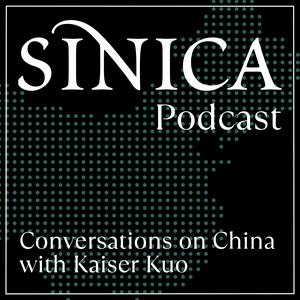This week on Sinica, I speak with Yi-Ling Liu, journalist, former China editor at Rest of World, and author of the new book The Wall Dancers: Searching for Freedom and Connection on the Chinese Internet. Yi-Ling's book traces the arc of Chinese online life through five protagonists — a rapper, a gay rights entrepreneur, a feminist activist, a science fiction writer, and an internet censor — each navigating the creative and constrictive forces of the Chinese internet in their own way. The result is a deeply reported, novelistic account of what it felt like to live, create, and push back in one of the most surveilled and dynamic digital environments on earth. We discuss the book's central metaphor of "dancing in shackles," the early utopian glow of Chinese netizen culture, the parallel fates of hip hop and science fiction under the state's alternating embrace and constraint, and the eerie convergence between the Chinese internet and our own.
0:06 — "Wall dancers" as a metaphor: what it captures that "dissident" or "netizen" doesn't
0:09 — Why 网民 (wǎngmín) took root in China as a concept of digital citizenship
0:13 — The early Chinese internet: more open than we remember, but not as free as the myth suggests
0:15 — Ma Baoli: closeted cop to CEO of China's largest gay dating app, and the Gay Talese reporting strategy
0:20 — Lan Yu, Beijing Story, and the film that became a coming-out moment for a generation of queer men
0:22 — Pragmatism at the heart of the dance: how individuals and the state negotiated the internet together
0:28 — Lu Pin and Feminist Voices: from "playing boundary ball" to sudden exile
0:35 — Stanley Chen Qiufan and the state's attempt to co-opt science fiction for nationalist ends
0:43 — The generational split in Chinese sci-fi: Liu Cixin's cosmic scale vs. the near-future unease of Chen Qiufan and Hao Jingfang
0:46 — Hip hop's arc: from underground scenes in Chengdu and Beijing to The Rap of China and sudden constraint
0:51 — Eric Liu, the Weibo censor: humanizing the firewall from the inside
0:55 — Common prosperity, Wang Huning, and the moral panic behind the crackdown on "effeminate" culture
0:59 — Techno-utopianism in retrospect: was the emancipatory internet always a fantasy?
1:03 — The convergence of the Chinese and American internets: Weibo and Twitter, TikTok and Oracle
1:07 — What it means to be free: how the book expanded Yi-Ling's sense of what freedoms people actually want
Paying it forward:
Zeyi Yang, technology reporter at WIRED, and co-author (with Louise Matsakis) of the excellent tech x China newsletter Made in China
Recommendations:
Yi-Ling: The Loneliness of Sonia and Sunny by Kiran Desai; Machine Decision is Not Final, an anthology of essays on Chinese AI compiled by scholars affiliated with NYU Shanghai.
Kaiser: The Coming Storm: Power, Conflict and Warnings from History by Odd Arne Westad (forthcoming);
Essays from Pallavi Aiyar's Substack The Global Jigsaw, particularly "How Has China Succeeded in Making People Mind their Manners" and "Why I Would Rather Be Born Chinese than Indian Today."
See Privacy Policy at https://art19.com/privacy and California Privacy Notice at https://art19.com/privacy#do-not-sell-my-info.


